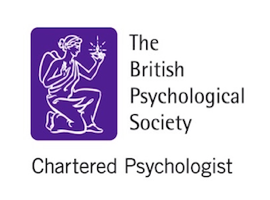Understanding Cognitive Behavioural Therapy (CBT)
What is CBT and how is it effective?
CBT is an evidence based, scientific approach and is a form of psychotherapy that is the treatment of choice for many conditions related to anxiety and depression. Your therapist will help you make sense of your overwhelming problems by breaking them down into smaller parts with you. This will make it easier for you to see how they are connected and how they affect you. For example, your thoughts about a problem can affect how you feel physically and emotionally, and consequently how you act. As a result, in some cases, CBT has even been able to match the effectiveness of antidepressants and through teaching strategies on how to manage difficult thoughts, feelings and behaviours, to more effectively prevent relapse.
CBT is recommended by The National Institute of Clinical Excellent (NICE) for many conditions and in fact, based on numerous studies showing its effectiveness, the Government’s NICE guidelines recommend CBT for a number of mental health issues. It has been successful in helping with Obsessive Compulsive Disorder, Phobias, Panic Disorder, Post-Traumatic Stress Disorder, Health Anxiety, Depression, Adjustment Disorders, Eating Disorders, anger problems, habits (such as facial tics and hair-pulling), drug and alcohol abuse, relationship problems and even sleep issues.
A high level of post-graduate training and experience in this particular type of therapy can lead to a CBT therapist being accredited by the British Association for Behavioural and Cognitive Psychotherapies (BABCP). In addition, Clinical Psychologists have an undergraduate degree in psychology, as well as a three-year postgraduate Doctorate in Clinical Psychology. This involves high quality training in using evidence-based psychological methods of assessment and treatment, as well as several intensive placements in different NHS specialities, thus ensuring a wide breadth of clinical experience, as well as more specialist training. This range of training allows Clinical Psychologists to also help people with chronic health conditions, such as arthritis and irritable bowel syndrome (IBS); although it cannot cure these physical problems it can help individuals who have such long-term conditions to cope with their symptoms better.
Whilst CBT is not a quick fix or an instant miracle cure, one of the greatest benefits is that you can continue to use the skills learnt and developed from it and apply them to future situations, to prevent escalating spirals of negative thought.
CBT helps people become their own therapist, through exploring the unhelpful patterns in their thinking and behaviours, that can distort their interpretations of events and can result in symptoms of anxiety or depression or other psychological difficulties. A CBT based treatment typically would involve a patient learning about their patterns of thinking and behaving, and finding ways to break the vicious cycle of negative thinking, which can automatically occur in response to emotionally upsetting experiences, through learning how to identify and challenge their patterns, and to develop better coping strategies.
The benefits of CBT include:
- It empowers the patient to become their own therapist, through learning specific techniques to self-manage,
- It is a brief, time limited and focused type of therapy,
- It is evidence-based, making it the recommended therapeutic treatment as advised by NICE guidelines for many psychological difficulties, including anxiety, depression, PTSD and Specific Phobias.





